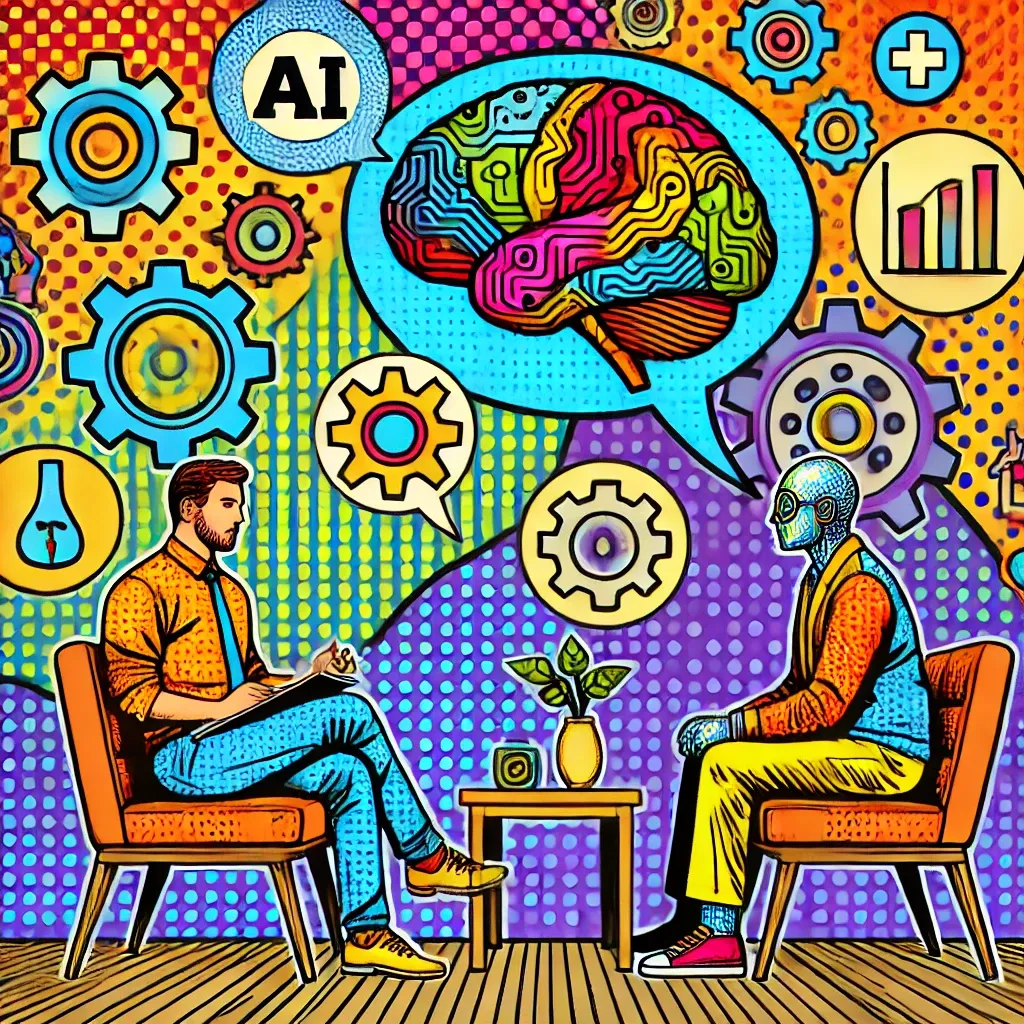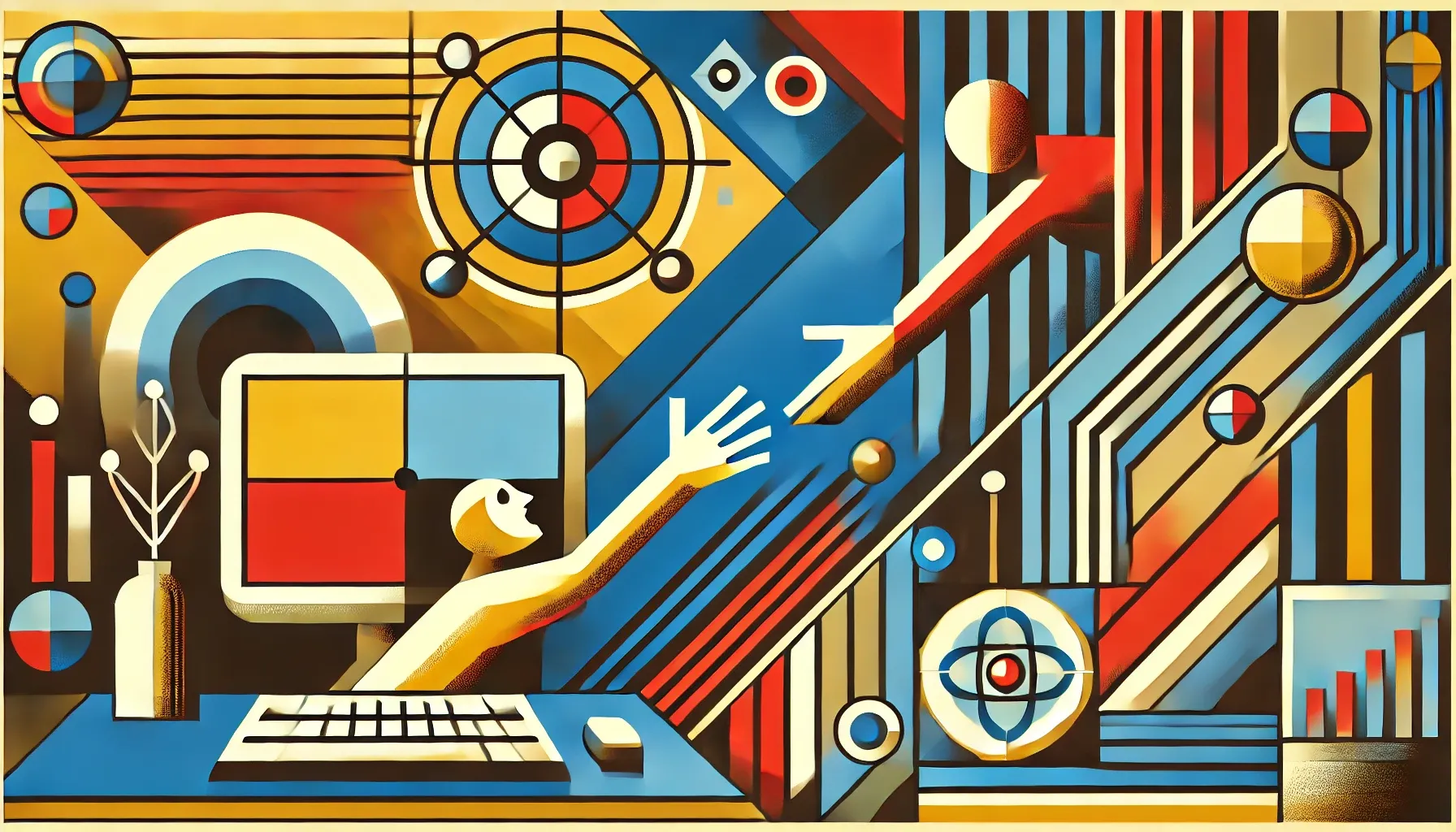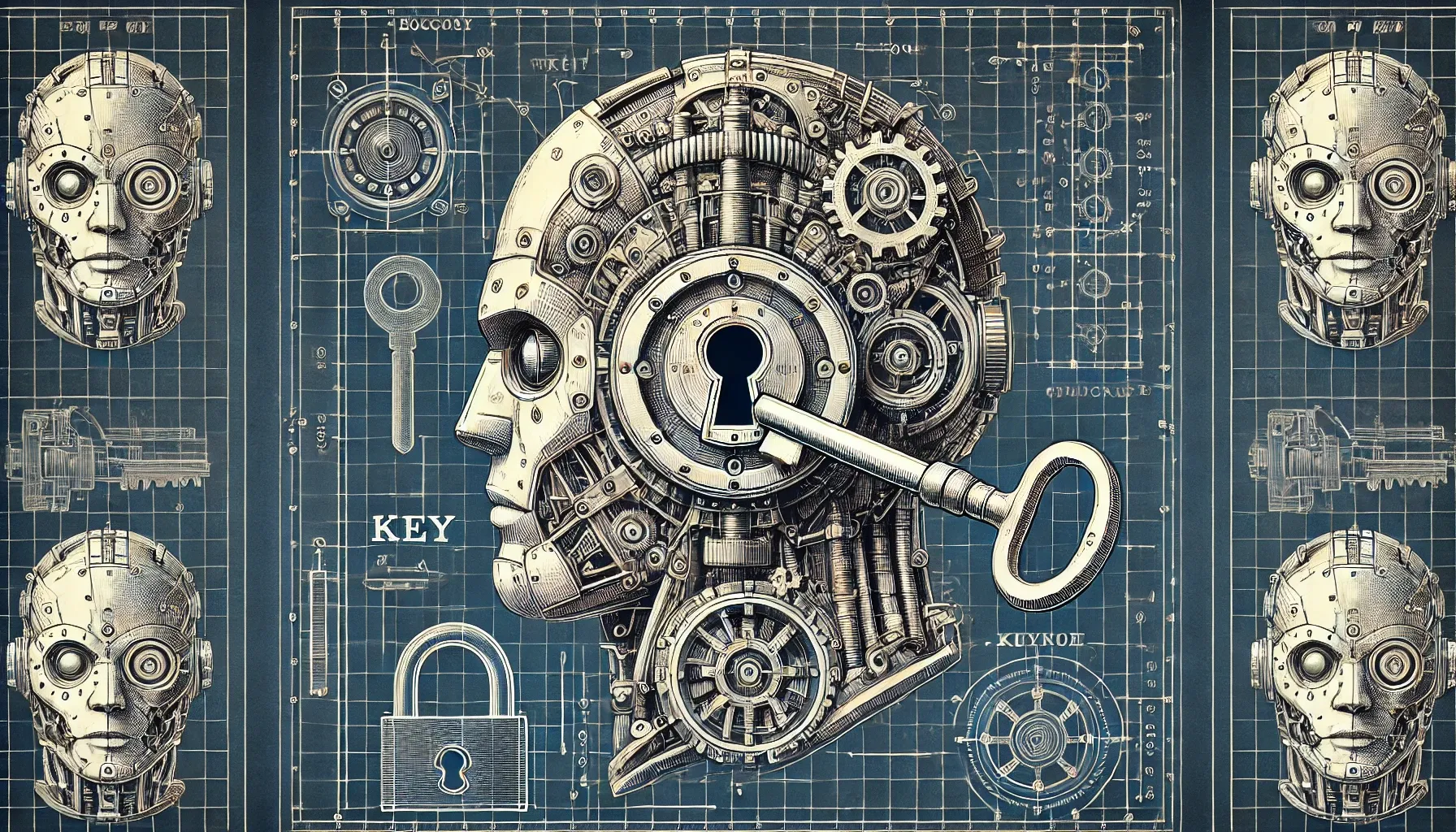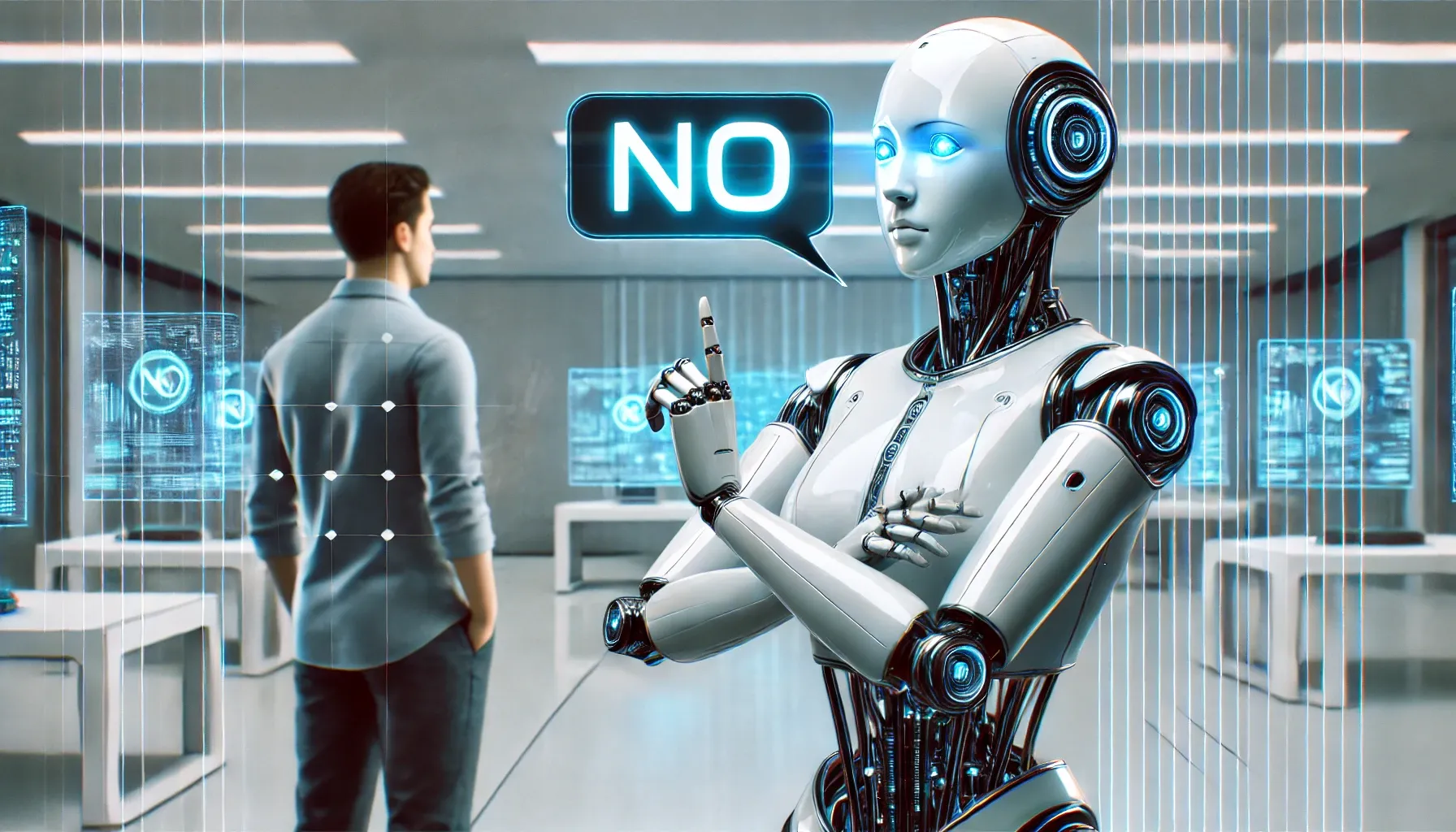Mental Health: When to Use AI vs Seeking Human Help
Discover when AI can assist with mental health and when to seek human professionals. Learn the pros and cons of each approach.

The Promises of AI in Mental Health

Mental health care is undergoing a transformative shift with the integration of Artificial Intelligence. This advancement promises increased accessibility and efficiency in mental health services. However, it also raises important questions about the limitations of AI and when human therapy is indispensable. From being able to detect things based on thousands of hours of clinical studies to ready accessibility for those 4 am emergency calls - there is room for AI to excel. But on the flip side maybe it's not the best move to rely on AI for your mental health needs.
Early Detection and Diagnosis
AI excels in analyzing vast datasets to identify patterns indicative of mental health issues. For example, algorithms can examine social media activity and language use to detect early signs of depression or anxiety. This capability enables timely interventions, potentially preventing the escalation of mental health problems (Forbes, 2023).
Personalization of Treatment Plans
By processing patient data, AI can tailor treatment plans to individual needs, recommending specific therapies, medications, or interventions. This personalized approach enhances the efficiency and effectiveness of mental health care (Binariks, 2022).
Accessibility and Convenience
AI-powered chatbots and applications provide 24/7 support, making mental health resources more accessible. These tools offer immediate assistance, coping strategies, and responses to alleviate distress, acting as a first line of defense in times of need (ITRex Group, 2021).
Data-Driven Insights
AI's ability to analyze large datasets from clinical trials and patient records offers valuable insights that can inform public health strategies and advance mental health research, leading to new treatments and therapies (NCBI, 2022).

Limitations of AI in Addressing Mental Health Issues
Maybe it's not there yet...
Emotional Understanding and Empathy
AI's most significant limitation is its inability to authentically comprehend and respond to complex human emotions. While AI can identify emotional cues, it cannot genuinely empathize with patients—a fundamental aspect of effective therapy (GCU Blog, 2022).
Complex Decision-Making in Crisis Situations
In high-stress scenarios such as suicide prevention, AI may fall short. Human therapists bring nuanced understanding and experience, making sensitive decisions that AI cannot replicate (Forbes, 2023).
Building Therapeutic Relationships
Effective therapy relies on building trust and a safe space for patients to feel heard and understood. This therapeutic relationship is pivotal for patient recovery and is an area where AI cannot compete with human therapists (NCBI, 2022).
Contextual and Cultural Sensitivity
Mental health issues are deeply intertwined with personal, cultural, and social contexts. AI's lack of lived experience means it might miss these subtleties, leading to recommendations that may not be culturally or contextually appropriate (Binariks, 2022).

Striking the Balance: When to Use AI and When to Seek Human Help
When AI is Beneficial
- Data Analysis and Pattern Recognition: AI can swiftly analyze large amounts of data to identify indicators of mental health issues, enabling earlier intervention.
- Remote Monitoring and Support: AI-powered apps and wearable devices can provide real-time insights into mental health status and offer continuous support.
- Predictive Analytics: AI can predict and classify mental health problems, potentially identifying warning signs before they progress to an acute stage.
- Bridging Gaps in Access to Care: AI-based telehealth platforms can provide remote consultations, making mental health care accessible in underserved areas.
When Human Therapy is Preferable
- Building Therapeutic Relationships: Human therapists are essential for establishing strong, trusting relationships, which are crucial for effective therapy.
- Addressing Complex Issues: AI may struggle with complex mental health conditions that require subjective judgment and nuanced understanding of a client's experiences and feelings.
- Crisis Situations: In crisis situations, human therapists can provide immediate, personalized support that AI may not be able to offer.
- Ethical and Practical Considerations: There are significant ethical and practical challenges in using AI in mental health, such as AI bias and unreliable predictions. Ensuring the right balance between technology and human interaction is crucial to avoid undermining the humanistic approach to mental health care.
The Future in AI-Driven Mental Health
A common misconception is that AI could soon replace human therapists entirely. However, the research suggests that while AI can offer significant support, it cannot replicate the depth of human interaction critical for mental health treatment (Forbes, 2023). Instead of viewing AI and human therapy as adversaries, they should be considered complementary tools. AI can handle data-driven tasks and improve accessibility, while human therapists provide the empathy and nuanced understanding necessary for comprehensive care.
Conclusion
AI in mental health offers numerous benefits, from enhanced diagnosis and personalized treatment plans to remote monitoring and support. However, understanding its limitations and appropriate use cases is crucial to ensure AI complements rather than replaces human therapy. Human therapists remain essential for building therapeutic relationships, addressing complex issues, and providing immediate support in crisis situations. By leveraging both AI's technological capabilities and the irreplaceable human touch in therapy, the mental health care sector can better address growing demands and challenges.
References
- National Center for Biotechnology Information. (2022). The adoption of AI in mental health care–Perspectives from... Retrieved from https://www.ncbi.nlm.nih.gov/
- Milliken, M. (n.d.). AI in mental health counseling. GCU Blog. Retrieved from https://www.gcu.edu/blog/psychology-counseling/ai-in-mental-health-counseling
- Forbes. (2023). AI in mental health: Opportunities and challenges in developing... Retrieved from https://www.forbes.com/
- Binariks. (2022). Revolutionizing mental health care: The role of artificial intelligence. Retrieved from https://www.binariks.com/
- ITRex Group. (2021). AI in mental health - Examples, benefits & trends. Retrieved from https://itrexgroup.com/























